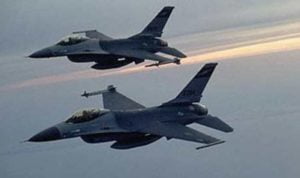The Untold Story of Soldiers and Porters in Siachen
3 min read
Introduction
We all admire the bravery of soldiers. We proudly post about their sacrifices on national days. But very few of us truly understand what it means to serve in places where even breathing is a battle.
In this blog, you’ll discover the raw, real, and rarely-told stories of the heroes who survive and serve in one of the most unforgiving places on Earth — the Siachen Glacier.
From frostbitten fingers to silent tears, from unsung porters to courageous soldiers — this story uncovers their daily struggles, sacrifices, and the invisible war they fight every single day. Brace yourself for an emotional journey that goes beyond headlines and hashtags.
The Harsh Reality of Siachen
Siachen Glacier is known as the world’s highest battleground, situated over 20,000 feet above sea level. The temperatures here can drop below -60°C. Oxygen levels are dangerously low. Avalanches, crevasses, and brutal winds are part of daily life. There’s no real enemy in sight most days, but the terrain itself is constantly at war with every human who dares to stand on it.
Imagine waking up in a frozen tent where even boiling water turns to ice within minutes. Imagine patrolling in snowstorms that blind your vision and burn your skin. This is not just physical survival — it’s mental endurance.
Who Are These Heroes?
Most people know about the soldiers. But few talk about the porters. These are the civilians — mostly locals from nearby villages — who risk their lives to carry fuel, rations, medicines, and equipment to soldiers stationed far up the glacier.
Soldiers are trained for war, but porters walk into danger untrained and under-equipped. Yet, without them, the troops above wouldn’t survive. Their bravery is quiet, but indispensable.
Daily Life on the Glacier
A soldier’s routine in Siachen is tough and repetitive. Each day starts with defrosting food with body heat. Every step outside is a calculated risk against frostbite. Sleep comes in bursts. Communication with family is rare and limited.
Porters, on the other hand, make dangerous journeys up steep, icy slopes with loads as heavy as 40 kg. They do this without thermal clothing or proper gear. For them, each trip is a gamble with life.
Despite the harshness, camaraderie is strong. Soldiers and porters eat together, laugh in rare moments, and form bonds that only such adversity can create.
Stories of Sacrifice and Bravery
There are countless tales that never make the news. A soldier once gave his only oxygen mask to a porter in a storm. A porter once dug out three trapped soldiers with bare hands after an avalanche.
Many have died without medals. Many bodies never came back. Yet, their spirit remains immortal on that glacier. Letters found in pockets, names scratched on helmets, and photographs frozen in time tell stories no one hears.
Logistics and Operations
How do supplies reach the top? Helicopters fly missions in extreme conditions. Fuel barrels are rolled uphill. Food packets are flown and trekked. One small mistake can cost lives. It takes a network of coordinated efforts and extraordinary courage.
Emergency evacuations require flawless timing and luck. Often, porters and soldiers become each other’s rescue team when time is too short for helicopters to arrive.
Human Side of the War Zone
Despite the hellish conditions, the human spirit survives. Soldiers celebrate Eid, Diwali, and birthdays by lighting candles in the snow. They share stories, jokes, and sometimes tears.
Porters often bring local sweets or tiny gifts sent by families. Laughter echoes in the ice caves, even if only for a few minutes. This isn’t just a war zone. It’s a place where humanity finds a way to live.
Why the World Needs to Know
We scroll past headlines. We tweet about nationalism. But the real heroes stay unnamed, unthanked. Soldiers are remembered on special days, but porters fade into anonymity.
This story matters because these men stand guard while we sleep, deliver food while we dine, and freeze while we warm our hands by the fire. We owe them awareness, respect, and gratitude.
Conclusion
They don’t fight for medals. They fight for survival. For duty. For their brothers in arms.
Let’s remember them not just on national holidays, but every day. Share their story. Salute their courage. And never forget the invisible war fought in the silence of the snow.
They fight the cold, the silence, and the enemy — all for us.






